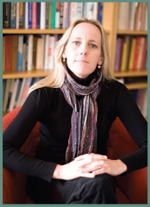Editor’s Note
 IS OCCUPY WALL STREET a humanist movement? On the one hand, seeing the Occupy phenomenon as largely an economic protest, how could it be? After all, humanists stand on the forefront of religious liberty and church-state separation issues, not disputes over the tax code and whether or not we should abolish the Federal Reserve. On the other hand, if the cornerstone of humanism is to affirm the inherent worth and dignity of all human beings, how could citizens taking to the streets and parks of cities all over the United States to protest economic and social injustice not be a humanist movement? While the rationalists and skeptics among us no doubt have legitimate concerns and gripes about this movement, Occupy (as it’s now referred to by participants) does espouse the need for the average citizen to take responsibility for improving society; and humanists are certainly familiar with an it’s-up-to-us mentality.
IS OCCUPY WALL STREET a humanist movement? On the one hand, seeing the Occupy phenomenon as largely an economic protest, how could it be? After all, humanists stand on the forefront of religious liberty and church-state separation issues, not disputes over the tax code and whether or not we should abolish the Federal Reserve. On the other hand, if the cornerstone of humanism is to affirm the inherent worth and dignity of all human beings, how could citizens taking to the streets and parks of cities all over the United States to protest economic and social injustice not be a humanist movement? While the rationalists and skeptics among us no doubt have legitimate concerns and gripes about this movement, Occupy (as it’s now referred to by participants) does espouse the need for the average citizen to take responsibility for improving society; and humanists are certainly familiar with an it’s-up-to-us mentality.
What I’ve personally found rather confounding is how, from the very beginning (Occupy Wall Street started on September 17, 2011), critics, pundits, and sympathizers alike have demanded to know what occupiers want and how they’re planning to get it. Some are asking as a way to characterize the movement as chaotic, destined for failure, or even dangerous. But I think some are really wondering if the occupiers know what they’re doing because they want the occupiers to know what they’re doing. They want grassroots, citizen-led action to succeed in addressing the economic disparity in the country and steer us toward a sustainable future.
In terms of the movement’s specific demands, the occupier from Oakland I interviewed told me they do have demands but that they won’t give them to the media. Even so, with slogans like, “We are the 99 percent” and “You can’t evict an idea” Occupy Wall Street and the thousands of offshoots around the country (and abroad) aren’t exactly being ignored. The city of Charlotte, North Carolina, host of the 2012 Democratic National Convention (some nine months away), has already drafted an ordinance declaring camping on public property a “public nuisance” in anticipation of an Occupy site in front of the convention hall. A December 9 article on Huffington Post quoted several occupiers who indicated they’d have much more important things to do protecting the working class than protest the convention. “We see our focus as building an independent movement that would challenge both parties,” said Occupy DC activist Kevin Zeese. He also said it would take years before Occupy got involved in electoral politics like the Tea Party did in 2009.
So what is it? What will it become? Is it something humanists are supporting?
Such are the issues at hand in this first issue of a new year. Our coverage of the movement isn’t comprehensive (impossible for a still very young movement that’s leaderless and on the move) but we hope it gives you some insight into the Zeitgeist known as Occupy.
Jennifer Bardi is the editor of the Humanist.
